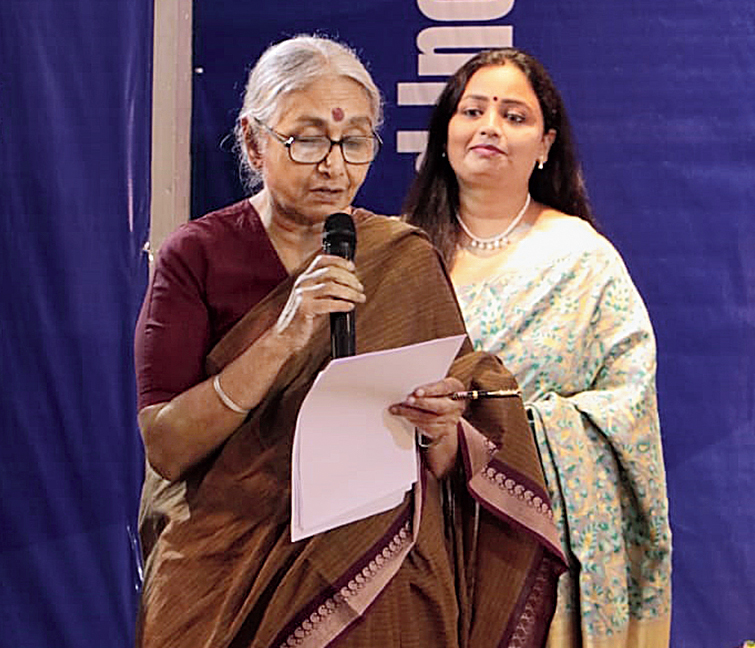No battle ever ends, so the struggle must continue for making voices of the unheard heard.
Social activist Aruna Roy, founder of Majdoor Kishan Shakti Sangathan, whose struggle for fair and equal wages for workers resulted in the enactment of the landmark Right to Information (RTI) Act, 2005, said this in Ranchi on Friday.
She was delivering the keynote address at a national conference on “Voices of the unheard — Putting the last first” that was organised by the rural management programme of Xavier Institute of Social Service (XISS), Ranchi, in association with Save the Children and Plan India at the XISS auditorium.
More than 300 people, including students, attended the event.
“These poor and marginalized people are not beggars and they also have dignity which must be respected,” she told the audience, giving an example from Rajasthan.
When the administration wanted to know what they needed during a severe drought in the desert state, everyone wanted work not dole, she informed.
Their slogan, she said, was “Har haath ko kaam do, kaam ka pura daam do” (Give work to all and pay the right wages for the work).
“Power must be truthful so that truth becomes powerful,” Roy said.
She said the unheard people need five basic things to make their voices heard — relevant information, proper hearing, active participation, security, and a platform for expressing themselves.
Referring to Section 4 of the Right to Information Act that assures commitment for providing information, she said the people of Rajasthan continued their demand for information and, as a result, real-time information relating to 37 government departments are now available online in that state.
“The shine has to be retained at any cost,” she told The Telegraph later on the sidelines when asked if the sunshine law had lost its sheen due to the recent amendment to the RTI law.
The government brought in an amendment bill for the RTI Act — a law that became an instrument for empowering citizens — and the bill was passed in both the houses of the Parliament in July this year.
This would give the central government more control over it and affect the independence of the information commissioners, knowledgeable circles apprehend.
“No doubt it has been diluted (due the amendment),” Roy said about the RTI Act, adding that the establishment of information commissioners that was working as a commission has now been reduced to a government department.
“We must not give up, and (we must) continue fighting for the right to information,” Roy stressed.











